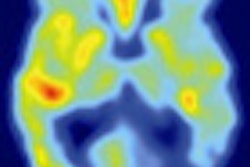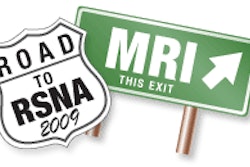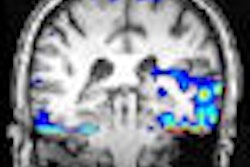Tuesday, December 1 | 11:10 a.m.-11:20 a.m. | SSG14-05 | Room N228
Researchers at the University of Pittsburgh Medical Center (UPMC) have used arterial spin-labeled MRI (ASL-MRI) to identify clinical Alzheimer's disease in elderly subjects with symptoms so mild that none of them had been identified as having dementia or memory loss by their primary care physician."This is an important finding, because it suggests that arterial spin-labeled MRI can detect Alzheimer's disease in its initial stages, and that could allow for earlier intervention and application of new drug treatments before a person is too severely consumed by the disorder," said lead author Cyrus Raji, Ph.D., from UPMC. "Arterial spin-labeled MRI is 85% sensitive for detecting Alzheimer's disease, and this is comparable with the results of prior PET studies."
In the study, data were analyzed from 19 cognitively normal individuals and 13 subjects with clinically proven Alzheimer's dementia. At the time of scan, the study noted, no Alzheimer's subjects had been identified by their primary care physician with a cognitive disorder, nor were they taking any cholinesterase inhibitors.
The subjects received structural T1-weighted spoiled gradient echo (SGPR) volumetric MRI and arterial spin-labeled perfusion MRI to measure regional cerebral blood flow.
In the analysis, arterial spin-labeled MRI had the highest specificity (85%), highest accuracy (70%), and largest negative predictive value (86%). Five-year follow-up showed that 37% of arterial spin-labeled false positives developed Alzheimer's.
With Alzheimer's disease, there is a reduction of blood flow throughout the brain, which can occur very early in the disorder. PET can provide information about metabolic activity in the brain, specifically the amount of glucose the brain is utilizing. To visualize this activity on PET, the patient needs to be injected with a radioactive tracer. Arterial spin-labeled MRI, however, does not require any contrast or radioactive tracer injections.
"This is an important distinction, since the elderly often have other medical conditions, such as severe chronic kidney disease, that prevent them from being injected with contrast agents," Raji said. "Arterial spin-labeled MRI can therefore be used to image the pathology of Alzheimer's disease in a manner that is very safe for the elderly."
He added that arterial spin-labeled MRI also is generally less expensive than PET scans.
Raji said that researchers hope the findings can help drive faster development of better treatments for Alzheimer's. "By imaging the pathology of the disease in its early stages, we can use MRI to determine if new drugs are effective in fighting Alzheimer's," he added.




















